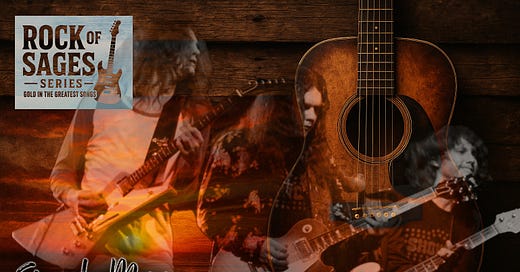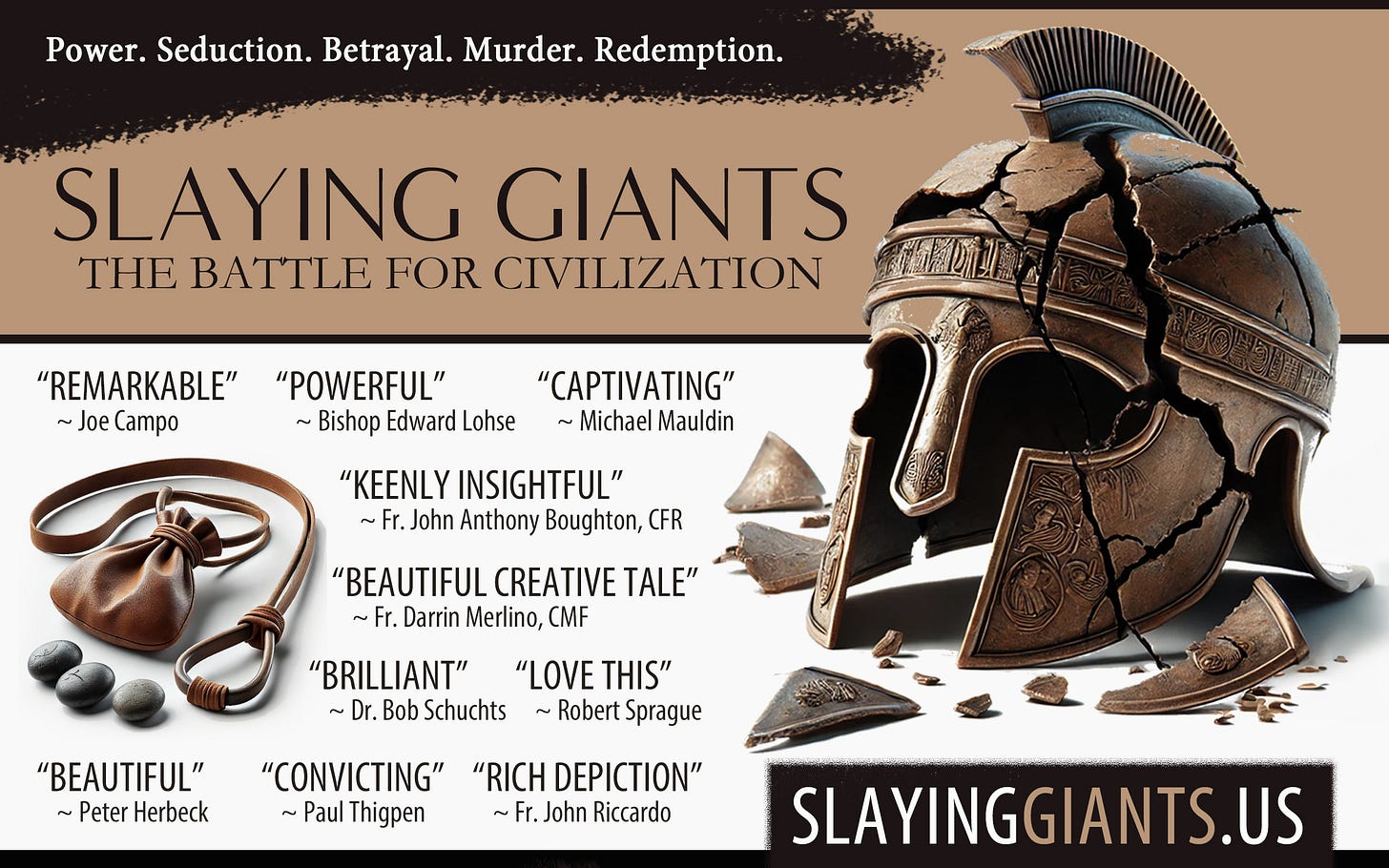For this second song in our series (following “Paint It Black”), let me take you back again to my beloved hometown—Oshkosh, Wisconsin—when summer evenings hummed with a shared rhythm. We were a brood of six consecutive boys, later crowned by a sister, with a full neighborhood gang that could’ve given the Little Rascals a run for their money.
Morning chores were the price for a full day of revelry with the boys: swimming until our skin pruned, followed by basketball, then soccer, then fort-building deep in Armory Woods. Sometimes we’d simply roam and laugh and let the day breathe. And when the sun began to bow low over Lake Winnebago, we’d steal away those last golden rays, boombox hissing through a worn cassette deck, and the sound—always the sound—of rock anthems that seemed etched into our bones.
Southern rock was iconic, even in the Midwest. It had dust on its boots and something honest in its voice—something that felt like home, even if you’d never seen a Georgia pine. And while Freebird may have been the legendary Lynyrd Skynyrd battle cry—the wild, sprawling anthem for open highways and unshackled hearts—it was Simple Man that settled in our chest. It didn’t demand the sky. It looked us in the eyes. It felt like a father sitting beside you on the porch after a long day. Like a mother running her fingers through your hair on a porch swing and offering the kind of wisdom that sticks. It was humble. Unhurried. Unshakable. It felt like someone was finally speaking into the ache, into the confusion, into that unspoken cry in the heart of every man: What do I do with this life? How do I become someone strong, good, real—someone worthy of being remembered?
THE MUSIC: UNHURRIED AND UNDENIABLE
The song begins like a memory. A clean, melancholic guitar arpeggio drifts in, simple and steady, like a conversation already underway. The drums follow—not with bombast, but with a grounded pulse, like the steady beat of a heart worn but still strong. And then Ronnie Van Zant’s voice enters—gravelly, raw, sure. “Mama told me…” he begins, and the words hang there—not as a lyric, but as a blessing, a commandment, a lifeline.
The song doesn’t rise. It roots. It doesn’t reach for applause. It reminds. There’s no urgency to impress—just a desire to tell the truth, the kind we rarely say aloud.
THE CONTEXT: 1973 AND THE LONGING FOR SOMETHING STEADY
Simple Man was released in 1973, just months after the U.S. pulled out of Vietnam and a nation sat stunned in the wake of Watergate, trying to find its footing in a world that had changed too fast. The countercultural wave had crested, leaving behind a generation trying to decide what parts of the revolution were worth keeping—and which had just left us emptier.
The American family was splintering. Fathers were quiet or gone. Mothers carried more than they could say. And in the deep South—and small towns across the country—boys were growing into men without maps.
That year, Van Zant wrote Simple Man in the aftermath of guitarist Gary Rossington’s mother’s death. There’s a sacred gravity to that—writing a song about maternal wisdom, legacy, and identity in the shadow of real loss. This wasn’t a marketing play. It wasn’t an engineered hit. It was a cry of the soul. And that’s why it endures.
WHY IT STILL SPEAKS
It’s been more than 50 years now since those chords first rang out—and they still feel like they were written yesterday. Or maybe tomorrow. Because the ache it names hasn’t changed. If anything, it’s only deepened.
Back then, we didn’t have everything figured out. We were reckless sometimes, and arrogant, and naive. But we had songs like this. And whether we lived them perfectly or not, we knew they pointed to something greater—something eternal. We felt it in our bones, even when we couldn't articulate it:
“Don’t forget, son, there is someone up above.”
That’s what made it so countercultural—then and now. It didn’t promise success or applause or pleasure. It promised truth. It promised that the way to be a man wasn’t to dominate, but to devote. To live humbly. Love deeply. Keep your soul tuned to heaven while your feet stay grounded in the dirt.
THE KIND OF MAN THIS SONG REMEMBERS
This isn’t just about a song. It’s about what it meant to grow up in a time when adults were still expected to be adults. When masculinity didn’t mean conquest or coolness—but conviction. When being a man meant standing firm in the storm, knowing your place before God, being strong enough to protect and gentle enough to weep. When you didn’t have to apologize for being a man—you just had to be one.
At its core, Simple Man is a blueprint of wholeness. Of integrity. Of that lost virtue we used to call “simplicity”—which never meant shallow or small, but undivided. The kind of clarity this noisy, fractured world finds threatening.
The mother’s wisdom isn’t flashy, but it’s foundational:
“Be a simple kind of man.
Be something you love and understand.”
In those lines lives an entire moral framework. It’s a call to authenticity over ambition, to wisdom over wealth, to love over lust. Not because those things—ambition, success, desire—are evil, but because they become idols when not tethered to something eternal.
When young people hear this song today, they’re not just hearing their dad’s favorite track. They’re hearing a homesick hymn—one that aches for clarity, stability, and the voice of someone who still dares to speak truth in love.
WHEN EVERYTHING SPLINTERS
And be a simple kind of man…
Today, our culture is allergic to that kind of clarity. Gender has become a battleground. Identity is liquid. Meaning is self-made. In such a fractured landscape, is it any wonder the Enemy would attack the very notion of what it means to be a man? Or a woman?
Simple Man points to something older and better. A vision of manhood grounded not in domination, but in devotion. It says to the young: here is a path. Here is what matters. Here is who you can be.
And there’s something else: the communal power of shared songs. Back then, we all listened to the same station. WAPL played through garages, basements, and borrowed car stereos. We’d show up to school the next day talking about the same songs, the same Christmas cartoons, the same world. There was unity in shared symbols.
Now, the earbuds are in. The worlds are private. The soundtrack of each life is algorithmically tailored. What we’ve gained in access, we’ve lost in communion. And what we’ve lost in simplicity, we’ve paid for in splintered selves.
A TIMELY TESTIMONY
Simple Man is a defiant call back to something whole. Something holy. It reminds us that simplicity isn’t naivety—it’s clarity. It’s strength. It’s truth distilled to its essence.
Be a simple kind of man.
Not a passive man. Not a weak man.
A man anchored in love.
A man who knows he comes from something greater, and lives for something more.
In the end, Simple Man offers not just a nostalgic track, but a timeless testimony. It dares to ask the question:
What kind of man are you?
And in doing so, it leads us—gently, powerfully—toward the only answer that can ever truly satisfy:
Forget your lust for the rich man’s gold
All that you need is in your soul
And you can do this, oh baby, if you try
All that I want for you, my son, is to be satisfied.
That’s the kind of man this world needs.
And maybe, just maybe, it’s still the kind we’re meant to become.
Awesome live version, ringing true decades later (praying Van Zant looking down from up above):
--------------
Greg Schlueter is an author, speaker, and movement leader passionate about restoring faith, family, and culture. In addition to directing communication and marketing for the Institute of American Constitutional Thought and Leadership, he leads Image Trinity (ILoveMyFamily.us), a dynamic marriage and family movement, and offers thought-provoking commentary on his blog, GregorianRant.us. He hosts the popular radio program and podcast IGNITE Radio Live alongside his wife, fostering meaningful conversations that inspire transformation. They are blessed with seven children (one in heaven) and a growing number of grandchildren. Recent books: The Magnificent Piglets of Pigletsville, Twelve Roses, and Slaying Giants (SlayingGiants.us).
HELP US SLAY GIANTS at SlayingGiants.us, with a forward by Fr. John Riccardo—a story being called "Captivating," "Beautiful," "Powerful."





